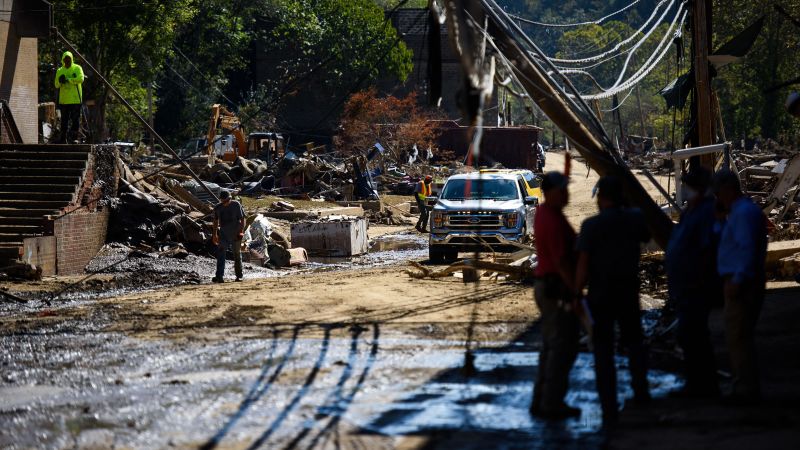False claims are circulating on social media regarding the federal response to Hurricane Helene, which is hindering recovery efforts in affected areas. These falsehoods target the Biden administration’s response to the storm and are likely to escalate with the upcoming presidential election between Donald Trump and Kamala Harris. Elon Musk, a supporter of Trump, has been spreading rumors denigrating the government’s response to the hurricane, with most misinformation being politically motivated to aid Trump’s reelection campaign.
Officials and emergency responders in the impacted areas have been working to debunk these lies and discourage the sharing of unsupported rumors on social media. The dissemination of misinformation has diverted resources that could have been better utilized in recovery efforts. Debunking efforts have been aided by platforms such as Snopes.com and regional media outlets, helping to reduce the circulation of false information in the affected communities.
One of the most widely-shared falsehoods relates to FEMA’s response to the disaster, with Trump falsely claiming that relief funds were being withheld from Republican areas in favor of migrants. The spread of misinformation has been exacerbated by the refusal of some individuals to accept the truth, with many choosing to believe in falsehoods rather than credible sources. Musk’s decision to reverse efforts to combat misinformation on social media platforms has contributed to the proliferation of baseless claims.
FEMA has attempted to counter these bogus claims by publishing a rumor control page to address misinformation, including claims that donations for survivors are being confiscated. However, journalists and commentators believe that these efforts may be futile as those who choose to believe in conspiracy theories are unlikely to trust official sources. The prevalence of misleading AI-generated images on social media platforms has further complicated the situation, with local news outlets having to educate the public on how to spot these fabricated images.
As the election approaches, the spread of misinformation is likely to intensify, contributing to an increasingly toxic online environment. The influx of false information is not only hindering recovery efforts but also fueling division and mistrust among communities. The urgent need to address the information crisis in the U.S. has become apparent, with lies being used to manipulate public opinion, influence elections, and promote various agendas. It is crucial for individuals to critically evaluate the information they encounter online and rely on credible sources for accurate information.


